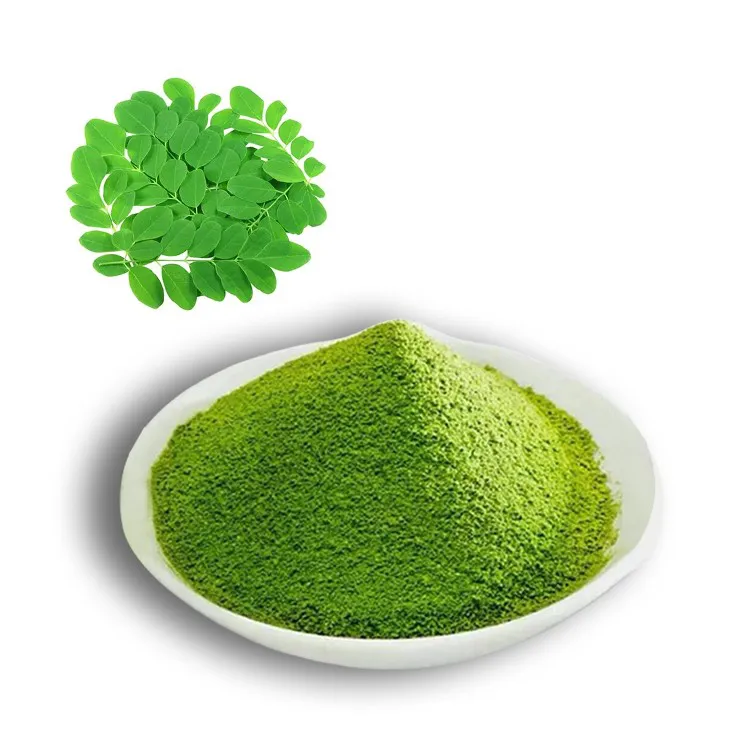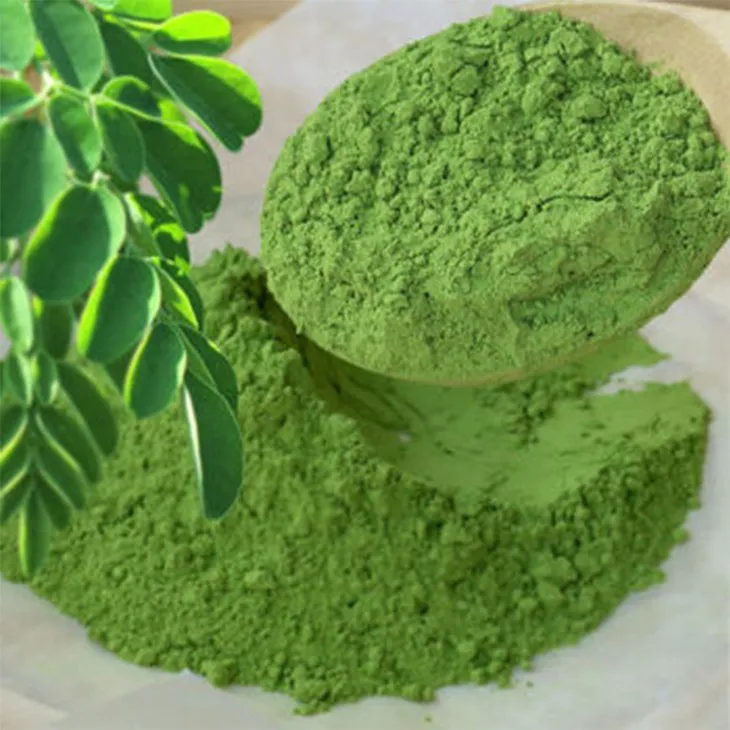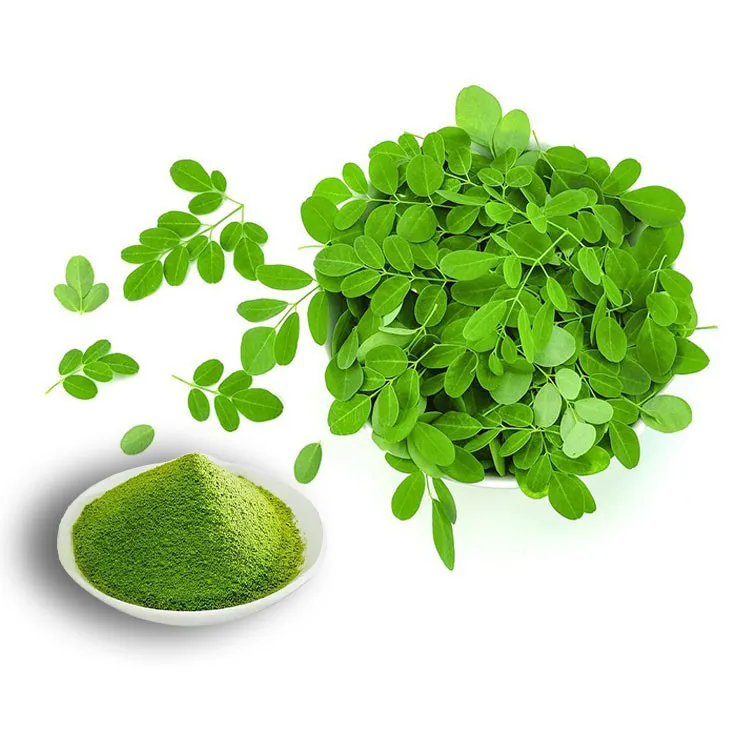- 0086-571-85302990
- sales@greenskybio.com
Two Basics of Moringa Powder Quality: Potency and Purity.
2024-12-11

1. Introduction
Moringa powder has gained significant popularity in recent years due to its numerous health benefits. However, to fully reap these benefits, it is crucial to understand the two fundamental aspects of its quality: potency and purity. Potency determines the nutritional and functional value of the Moringa powder, while purity ensures its safety and authenticity. In this article, we will dive deep into these two aspects to gain a comprehensive understanding.

2. Potency of Moringa powder
2.1 Nutritional Composition
Moringa powder is a rich source of various nutrients. It contains high levels of vitamins such as vitamin A, vitamin C, and vitamin E. Vitamin A is essential for good vision, healthy skin, and a strong immune system. Vitamin C is a powerful antioxidant that helps in collagen synthesis and boosts the immune system. Vitamin E also acts as an antioxidant, protecting cells from damage.
Moreover, moringa powder is packed with minerals. It is a good source of calcium, which is necessary for strong bones and teeth. Iron is another important mineral present in moringa powder, which is crucial for the formation of hemoglobin in red blood cells, preventing anemia. Potassium in moringa powder helps in maintaining proper heart function and regulating blood pressure.
It also contains essential amino acids, which are the building blocks of proteins. These amino acids are required for various physiological functions in the body, including muscle building, repair of tissues, and the production of enzymes and hormones.
2.2 Functional Value
Due to its rich nutritional composition, moringa powder has several functional values. It has been shown to have anti - inflammatory properties. The antioxidants present in moringa powder help in reducing inflammation in the body, which is associated with many chronic diseases such as arthritis, heart disease, and diabetes.
It also has potential anti - cancer properties. Some studies have suggested that certain compounds in moringa powder may help in preventing the growth and spread of cancer cells, although more research is needed in this area.
Moringa powder can also aid in digestion. It contains fiber, which helps in promoting regular bowel movements and preventing constipation. Additionally, it may help in improving the absorption of nutrients in the gut.

3. Factors Affecting Potency
3.1 Growing Conditions
The potency of moringa powder can be significantly affected by the growing conditions of the moringa tree. Moringa trees thrive in warm, tropical climates. Adequate sunlight is crucial for the production of nutrients in the leaves. If the trees are grown in shaded areas, they may produce leaves with lower levels of vitamins and minerals.
The quality of the soil also plays an important role. Moringa trees prefer well - drained, fertile soil. Soil that is rich in organic matter can provide the necessary nutrients for the tree to grow and produce high - quality leaves. In contrast, poor - quality soil may result in nutrient - deficient moringa leaves, which will subsequently affect the potency of the moringa powder.
3.2 Harvesting and Processing
The time of harvesting is a critical factor in determining the potency of moringa powder. The leaves should be harvested at the right stage of maturity. If the leaves are harvested too early, they may not have fully developed their nutrient content. On the other hand, if they are harvested too late, the nutrient levels may start to decline.
Proper processing methods are also essential to preserve the potency of moringa powder. After harvesting, the leaves should be dried quickly to prevent the loss of nutrients. If the drying process is too slow or if the leaves are exposed to high humidity during drying, it can lead to the degradation of vitamins and other nutrients.

4. Purity of Moringa Powder
4.1 Contaminants to Avoid
Purity in moringa powder is crucial for safety. One of the main contaminants to be aware of is pesticides. If moringa trees are grown using excessive pesticides, these chemicals can remain on the leaves and end up in the moringa powder. Pesticide residues can be harmful to human health, causing various adverse effects such as hormonal imbalances, neurological problems, and an increased risk of certain cancers.
Heavy metals are another potential contaminant. Moringa trees can absorb heavy metals from the soil, especially if the soil is contaminated. Lead, mercury, and cadmium are some of the heavy metals that can be present in moringa powder if the growing conditions are not properly monitored. High levels of heavy metals in the body can lead to serious health problems, including kidney damage, liver damage, and problems with the nervous system.
Microbial contamination is also a concern. Bacteria, fungi, and other microorganisms can contaminate moringa powder if proper hygiene and processing standards are not followed. Consumption of moringa powder contaminated with harmful microbes can cause foodborne illnesses, such as diarrhea, vomiting, and abdominal cramps.
4.2 Authentication and Quality Assurance
To ensure the purity of moringa powder, authentication and quality assurance measures are necessary. One way to authenticate moringa powder is through laboratory testing. Tests can be conducted to detect the presence of pesticides, heavy metals, and microbial contaminants. These tests should be carried out by accredited laboratories to ensure accurate results.
Quality assurance also involves proper sourcing of moringa powder. It is important to obtain moringa powder from reliable suppliers who follow good agricultural and processing practices. Suppliers should be able to provide documentation regarding the origin of the moringa powder, the growing conditions, and the processing methods used.
Certifications can also serve as an indication of purity. For example, organic certifications can ensure that the moringa powder is produced without the use of synthetic pesticides and fertilizers. GMP (Good Manufacturing Practice) certifications can guarantee that the processing facilities follow strict quality and hygiene standards.
5. Conclusion
In conclusion, both potency and purity are essential aspects of moringa powder quality. Potency determines the nutritional and functional value that moringa powder can offer, while purity ensures its safety and authenticity. When choosing moringa powder, consumers should look for products that are sourced from reliable suppliers, have undergone proper testing for contaminants, and are produced under good agricultural and processing conditions. By understanding these two fundamental aspects of moringa powder quality, we can make informed decisions and fully enjoy the health benefits that moringa powder has to offer.
FAQ:
What is meant by the potency of Moringa powder?
Potency in Moringa powder refers to the concentration and effectiveness of its beneficial components. It is related to the amount of essential nutrients such as vitamins (like vitamin A, C, E), minerals (such as iron, calcium), and amino acids present. A high - potency Moringa powder contains a significant amount of these nutrients in a form that can be easily absorbed and utilized by the body. For example, the potency of protein in Moringa powder determines how well it can contribute to muscle building and repair in the body.
How can we measure the potency of Moringa powder?
Measuring the potency of Moringa powder involves laboratory analysis. Scientists can use techniques such as chromatography to determine the exact amounts of different nutrients. For vitamins and amino acids, spectrophotometric methods might be employed. Additionally, proximate analysis can be used to measure the levels of macronutrients like proteins, fats, and carbohydrates. However, these methods are mostly carried out in research and quality control laboratories, and consumers usually rely on the information provided by reliable manufacturers who have conducted such tests.
What does purity mean in the context of Moringa powder?
Purity in Moringa powder refers to the absence of contaminants and adulterants. This means that the powder should be free from harmful substances such as pesticides, heavy metals (like lead, mercury), and other impurities that could be introduced during cultivation, harvesting, or processing. It also means that there is no addition of non - Moringa substances to the powder for the purpose of increasing volume or reducing cost. Pure Moringa powder is solely made from the dried and ground parts of the Moringa plant.
How can we ensure the purity of Moringa powder?
To ensure the purity of Moringa powder, several steps can be taken. Firstly, during cultivation, organic farming methods can be used to reduce the use of pesticides and fertilizers that may leave residues. Secondly, proper harvesting and post - harvest handling are crucial. This includes cleaning the Moringa leaves and pods thoroughly before drying and grinding. Thirdly, manufacturers should conduct regular quality control tests for contaminants using advanced analytical techniques. Consumers can also look for certifications such as organic certifications or quality seals from reliable organizations, which indicate that the product has met certain purity standards.
Why are potency and purity both important for Moringa powder quality?
Potency and purity are both essential for Moringa powder quality. Potency determines the nutritional and functional value of the powder. If the powder has high potency, it can provide significant health benefits, such as boosting the immune system, improving digestion, and providing energy. On the other hand, purity ensures safety and authenticity. Impure Moringa powder may contain harmful substances that can cause adverse health effects. Without purity, the potency of the beneficial components may also be affected as contaminants can interfere with the absorption and effectiveness of the nutrients. So, both aspects need to be considered to ensure a high - quality Moringa powder product.
Related literature
- Evaluating the Nutritional Potency of Moringa Powder: A Comprehensive Review"
- "Purity Standards in Moringa Powder Production: Current Practices and Future Directions"
- "The Significance of Potency and Purity in Dietary Supplements: A Case Study of Moringa Powder"
- ▶ Hesperidin
- ▶ citrus bioflavonoids
- ▶ plant extract
- ▶ lycopene
- ▶ Diosmin
- ▶ Grape seed extract
- ▶ Sea buckthorn Juice Powder
- ▶ Beetroot powder
- ▶ Hops Extract
- ▶ Artichoke Extract
- ▶ Reishi mushroom extract
- ▶ Astaxanthin
- ▶ Green Tea Extract
- ▶ Curcumin Extract
- ▶ Horse Chestnut Extract
- ▶ Other Problems
- ▶ Boswellia Serrata Extract
- ▶ Resveratrol Extract
- ▶ Marigold Extract
- ▶ Grape Leaf Extract
- ▶ blog3
- ▶ blog4
- ▶ blog5
-
Pure 85% Tomentil Extract.
2024-12-11
-
Acerola Extract
2024-12-11
-
Longan Extract
2024-12-11
-
Cassia Seed Extract
2024-12-11
-
Cat Claw Extract
2024-12-11
-
Grape Leaf Extract
2024-12-11
-
Sophora Japonica Flower Extract
2024-12-11
-
Honeysuckle Pollen
2024-12-11
-
Plantain extract
2024-12-11
-
Tinospora cordifolia extract
2024-12-11
-
Camu Camu Extract
2024-12-11





















